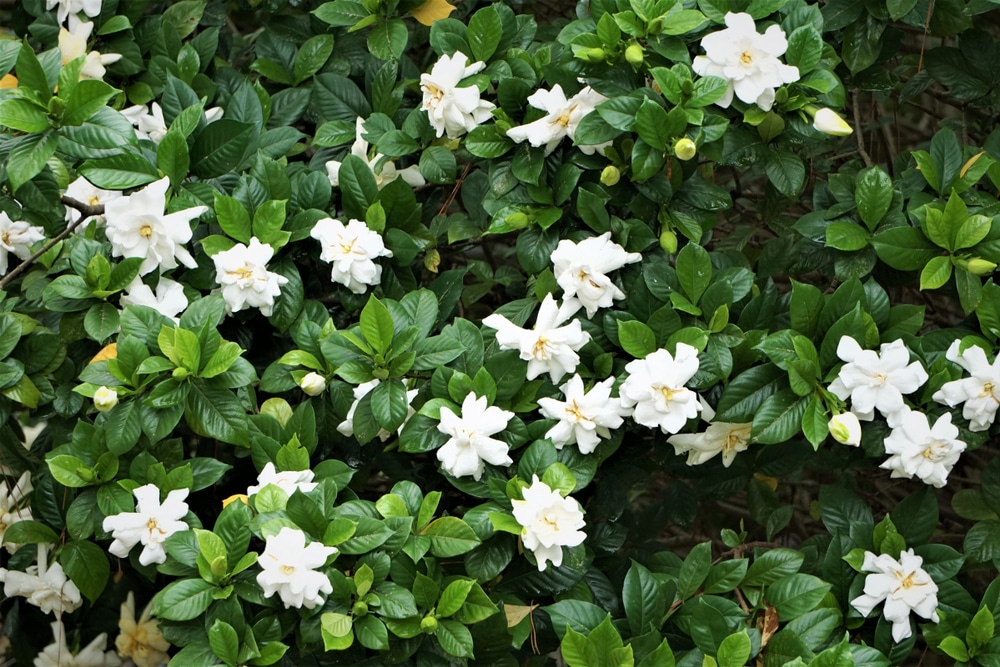Jasmine is known for its delicate white flowers and soothing scent. So, it is no surprise that people enjoy planting this flower in and around their homes. But what if your newly planted Jasmine flower brings some other unwanted guests to your party, bees? Does Jasmine attract bees?
The answer is yes. Bees are drawn to the strong, tropical scent that Jasmine gives off, and the white color is easy for them to spot among green leaves.
Does Jasmine Attract Bees

Jasmine attracts bees and should not be the plant of choice if your goal is to reduce the number of bees at your home. Bees are naturally attracted to flowers with strong scents because their main goal is pollination. Intense floral aromas tell them that this plant is full of flowers that need pollinating.
Jasmine Produces Nectar
Bees love some good nectar. Flowers that produce a lot of high-quality nectar, needed for bees to pollinate, typically have strong scents. Jasmine produces enough nectar to give off the robust, tropical scent, which is why bees are drawn to this flower in particular.
Bees use nectar to produce honey, so they must find a flower full of it to do what nature intended them to do: make honey. They absorb the nectar through their mouth and then store it in a second sac in their stomach. They then take that back to their hive and pass it along to other bees, exposing the nectar to various enzymes and chemicals needed to break it down. That is how honey is eventually produced and stored in the honeycomb at the bee’s hive.
Why Plant Jasmine?
If bees are something you want to keep away from your garden, you may want to reconsider planting Jasmine but, if you welcome bees Jasmine is a great flower to have on hand. Jasmine is a natural cure for inflammation, can help reduce stress, and speeds up wound healing.
It is no wonder why the bees love it!
Jasmine Is a Natural Cure for Inflammation
Jasmine has healing properties that help reduce inflammation. Jasmine tea, in particular, is a great way to cure inflammation and may even help ease pain in patients dealing with arthritis. Arthritis is a condition that causes inflammation, so naturally consuming something known to help reduce inflammation is good practice.
Jasmine Reduces Stress
Jasmine’s strong, tropical aroma makes it the perfect de-stressor. Jasmine extract is often found in perfumes, bed-time pillow sprays, natural oils, and candles. Sniffing the scent of Jasmine is a great way to wind down and ease the stress in life.
A study done by The Journal of Nursing and Midwifery Sciences showed a significant decrease in anxiety and cortisol levels in patients that were regularly exposed to the Jasmine scent—proving that there may be something special about this plant after all.
Jasmine Speeds up Wound Healing
Another good reason to plant Jasmine is that it could also speed up wound healing. The natural chemicals found in Jasmine enhance wound contraction and increase blood vessel formation, making it a great way to speed up the healing process of chronic wounds. People struggling with diabetic ulcers or other forms of chronic wounds may find Jasmine helps ease the pain.
Jasmine Is Attractive to Bees
In conclusion, it is clear that planting Jasmine in and around your home has many benefits, but if it is bees you are looking to avoid, it may not be the best option for you. Jasmine is a vining plant that comes in many varieties and climb a fence.
Bees are attracted to the sweet, floral scent that Jasmine gives off and love the fact that it is full of delicious nectar. So, if you decide to plant Jasmine, the bees will love you and will “bee” so happy.
